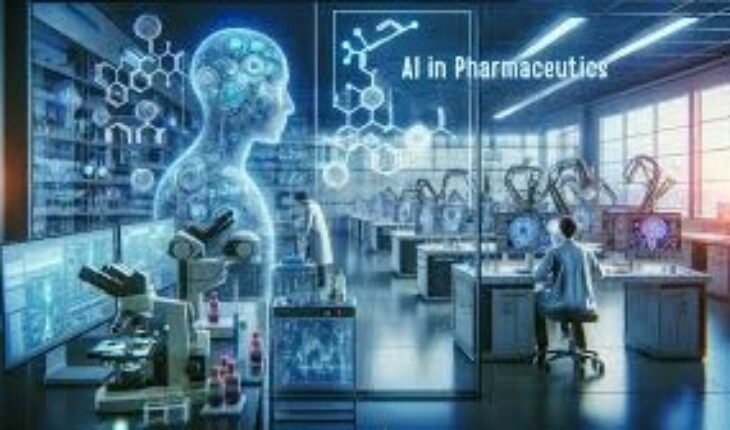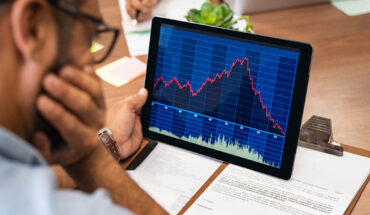
Dr. Anil Kumar Angrish

Kritika
Various digital tools, including Artificial Intelligence (AI), Real World Evidence (RWE), Blockchain, interconnected big data, Virtual Reality (VR), Augmented Reality (AR), among others are making significant impact across various sectors. Pharmaceutical sector is not an exception in this regard.
In recent years, multiple studies have explored the use of AI in Pharmaceutical and Healthcare domain, e.g., Subrat et al. (2023) provided in-depth reviews of the use of AI in disease diagnosis, digital therapy, individualized treatment, drug development, and epidemic or pandemic forecasting. Pharmaceutical and Healthcare sector has attracted the attention of Big Tech like Apple, Amazon, Alphabet, Microsoft, and Meta as these companies already have deep expertise in the digital sector. Schuhmacher et al. (2023) observed that Big Tech is expanding into pharmaceutical and healthcare sectors. Schuhmacher et al. (2020) in the study titled – ‘The upside of being a digital pharma player’ demonstrated that it is worthwhile to invest to become a ‘digital pharma player’. Authors stated that all major pharmaceutical companies had at least one research collaboration with AI specialists to gain access to AI technologies. In that background, collaborative arrangement between tech giants and pharma research organizations (established as well as new) can act as a major contributor for the successful implementation of digital tools.
Almost all largest pharmaceutical companies have AI partnerships and collaborations. To leverage the potential of AI, these pharmaceutical companies have either partnered with or acquired AI companies. By June 2023, Novartis had AI partnerships with organizations such as IBM, Microsoft, MIT, Intel, Quantum black, Benevolent AI and XtaPi. Some of these AI firms/organizations had collaboration with other pharmaceutical companies as well, e.g., Microsoft and Benevolent AI had AI partnerships with AstraZeneca whereas IBM, MIT and XtaPI had AI partnerships with Pfizer. At the same time, AstraZeneca had AI partnerships with Berg, Illumina, Tencent and Schrodinger. Same was the case for Pfizer that had AI partnerships with other AI firms namely CytoReason, Tempus, Iktos, Atomwise and InSilico.
By June 2023, Merck had AI partnerships with Cyclica, Iktos, Schrodinger, AbSci, Aera, Tencent. Roche, another prominent pharmaceutical company had multiple AI collaborations with organizations such as Owkin, Flatiron, Synapse, EarlySign, PathAI in addition to pharma/healthcare companies such as BMS and GNS Healthcare. GSK had AI partnerships with Insilico, Tempus, PathAI, Exscientia in addition to Cloud Pharmaceuticals. Johnson & Johnson had AI partnerships with Iktos, XtaPi, InSilico, Winterlight Labs and Benevolent AI. Bayer collaborated with Exscientia, Cyclica, Atomwise, Sensyne Health for leveraging opportunity in AI. Moderna’s AI partnership with IBM, Amgen’s collaboration with Generate Biomedicine and Owkin, Novo Nordisk’s AI partnership with Microsoft and InSilico, and AbbVie’s AI partnership with AiCure, Atomwise, Anima Biotech and HotSpot were other notable AI partnerships.
An interesting theme is that Big Tech companies have AI partnerships with top global pharmaceutical companies, and at the same time, those global pharmaceutical companies have AI partnerships with many other AI firms/organizations. Notable AI partnerships of Big Tech with top global pharmaceutical companies include Sanofi and Google, Novo Nordisk and Microsoft, Moderna and IBM in addition to earlier listed AI partnerships of Microsoft and IBM with Novartis, Microsoft and AstraZeneca, and IBM with Pfizer, to name a few.
AI is being leveraged by top global pharmaceutical companies across the value chain. For example, Pfizer partnered with various AI companies for drug discovery and the list of collaborators include MIT in the year 2014, IBM (2016), XtaPi (2018), Insilico Medicine (2020), Iktos (2021), Atomwise (2022) and CytoReason (2022). Pfizer collaborated with Concerto healthAi in 2017 for collecting and analyzing clinical data using advanced analytics and AI algorithms to accelerate the development of targeted therapies. For clinical development, Pfizer collaborated with Saama in 2020 and tempus in 2022. Pfizer partnered with Catalia Health and Complexica in 2019 and 2021 respectively for patient monitoring and support.
From 2011 to 2021, Novartis had multiple AI-based partnerships and collaborations which included partnering companies like Microsoft, MIT, Intel and Dyno Therapeutics for drug discovery. Novartis collaborated with Quantumblack to develop advanced analytics tools to help unlock insights from complex data sets, new targets for drug development, and streamline clinical trials. With Tencent, Novartis collaborated to develop and deploy innovative digital health tools, including disease management and patient monitoring solutions. BenevolentAI and Novartis came together in which AI and Machine Learning (ML) technologies were to be used to stratify patients and for better understanding of patient and disease heterogeneity, thereby allowing for more precise drug targeting for individuals who require it.
AstraZeneca opted for the multitude of partnerships and collaborations in different phases of drug development process. In 2018, AstraZeneca collaborated with Alibaba.com to capitalize on their expertise in AI and the internet to focus on smart health services which included patient education, prevention and management of chronic diseases. AstraZeneca also partnered with Microsoft to launch the AI Factory for Health for serving as a robust accelerator program for startups. This was positioned as a collaborative innovation hub to bring together startups, research entities, and various industry stakeholders. Partnerships of AstraZeneca mainly focused on drug discovery, clinical development, commercialization, and patient monitoring & support.
Roche partnered with Syapse to use AI technology to identify potential therapeutic targets in the field of precision oncology using Real world data. Roche acquired Flatiron health which became a standalone unit later. This allowed Roche to cache of more than 2 million cancer patients’ electronic health records, an information trove to help the company gain regulatory and payer approval for drugs among other uses. Medial EarlySign, a pioneering company developing AI based clinical predictive analytics had announced the signing of a partnership with Roche to focus on innovative, evidence-based solutions for early detection of lung cancer.
GSK partnered with various AI companies across the value chain. In 2017, GSK collaborated with Exscientia to utilize its AI-driven platform in conjunction with own expertise to identify new and specific small molecules for up to 10 disease-related targets, Insilico medicine to leverage the target identification of multitude of therapy area and Cloud Pharmaceuticals to design novel small-molecule agents to GSK-specified targets. GSK collaborated with Tempus to enhance the design of clinical trials, accelerate patient enrolment, and identify potential drug targets. GSK also collaborated with PathAI to draw new insights which can be rapidly integrated into clinical trials. The company collaborated with NVIDA that was expected to contribute its deep expertise in GPU optimization and high-performance computational pipeline development.
Johnson & Johnson, another prominent pharmaceutical company, partnered with different AI companies, e.g., partnership with Iktos in 2019 to incorporate Iktos’s virtual design technology into multiple small molecule drug discovery projects. Collaboration of J&J with BenevolentAI aimed at providing tailored solutions for Parkinson drug development. Partnership with XtaPi was aimed to utilize its advanced end-to-end platform called Inclusive Digital Drug Discovery & Development (ID4) that combined cloud-based computations and cutting-edge wet lab capabilities. Main aim was to reduce the time taken for the Design-Make-Test-Analyze (DMTA) cycle in drug development.
Eli Lilly collaborated with specialists in AI such as Atomwise, Schrodinger, Genesis Therapeutics and Biolojic Design to use to use AI algorithms and softwares for drug discovery. Collaborators of AbbVie include Atomwise, AnimaBiotech, Hotspot and AiCure for target areas such as drug design and therapy adherence. The collaboration between Novo Nordisk and Microsoft combined Microsoft’s computational services, Cloud, and AI capabilities with Novo Nordisk’s expertise in drug development and data science.
Most of these AI-partnerships of prominent pharmaceutical companies reveal that there is a growing recognition of the potential synergy between AI technologies and the pharmaceutical industry. From AI partnerships of top global pharmaceutical companies, it gets reflected that there is widespread adoption of multiple AI solutions at various stages of the drug discovery and clinical development, manufacturing and supply chain, commercialization, and patient support.
Dr. Anil Kumar Angrish-Associate Professor (Finance and Accounting),
Department of Pharmaceutical Management, NIPER S.A.S. Nagar (Mohali), Punjab
Kritika- MBA (Pharm.), Department of Pharmaceutical Management,
NIPER S.A.S. Nagar (Mohali), Punjab
Disclaimer: Views are personal and do not represent the views of the Institute.






